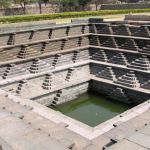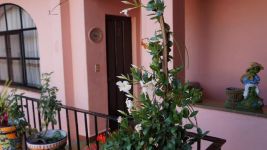小学生清明节英语周记(通用3篇)
小学生清明节英语周记 篇1
the Qingming (Pure Brightness) Festival is one of the 24 seasonal division points in China, falling on April 4-6 each year. After the festival, the temperature will rise up and rainfall increases. It is the high time for spring plowing and sowing. But the Qingming Festival is not only a seasonal point to guide farm work, it is more a festival of commemoration.

the Qingming Festival sees a combination of sadness and happiness.
this is the most important day of sacrifice. Both the Han and minority ethnic groups at this time offer sacrifices to their ancestors and sweep the tombs of the diseased. Also, they will not cook on this day and only cold food is served.
the Hanshi (Cold Food) Festival was usually one day before the Qingming Festival. As our ancestors often extended the day to the Qingming, they were later combined.
On each Qingming Festival, all cemeteries are crowded with people who came to sweep tombs and offer sacrifices. traffic on the way to the cemeteries becomes extremely jammed. the customs have been greatly simplified today. After slightly sweeping the tombs, people offer food, flowers and favorites of the dead, then burn incense and paper money and bow before the memorial tablet.
In contrast to the sadness of the tomb sweepers, people also enjoy hope of Spring on this day. the Qingming Festival is a time when the sun shines brightly, the trees and grass become green and nature is again lively. Since ancient times, people have followed the custom of Spring outings. At this time tourists are everywhere.
People love to fly kites during the Qingming Festival. Kite flying is actually not limited to the Qingming Festival. Its uniqueness lies in that people fly kites not during the day, but also at night. A string of little lanterns tied onto the kite or the thread look like shining stars, and therefore, are called "god's lanterns."
小学生清明节英语周记 篇2
今天是清明节,我真高兴,因为我爷爷奶奶的坟在乡下,这样我就可以到乡下去玩了,不过想到逝去的亲人,我还是有点伤心。
我到姨兄家去玩,姨兄问我:“有一首诗跟今天有关,你能背出来吗?”“清明,清明时节雨纷纷,路上行人欲断魂……”。“不错嘛!”
我和姨兄到外边晃悠,碰到他的同学,便和他同学一起去挂“清”。说起来也真奇怪,他家的老坟在一个比较高耸的地方,到处长满杂草,费好大的劲才走上去,草丛中有好几个坟。正是这复杂的地方才使他们经常把清挂在别人家的坟上。
当回来的时候我看见不同坟上挂着用塑料、纸做成的各式各样的“清”,我一直都不明白它的意思,现在才知道,那是对逝去亲人的一种怀念。
小学生清明节英语周记 篇3
今年清明节的时候回家祭祖。关于清明节,南方和北方的习俗是完全不一样的,凭个人感觉,南方的清明节要更隆重庄严一些,尽管比不上春节过年,但村里老老少少赶回来扫坟挂祖的人还是不少,高速上一度出现拥堵。我们高铁到了HY市,又DD到了HZ镇,父亲已经租好了船,停靠在江岸边等我们,在见到父亲的那一刻,一路的疲劳和辛苦尽消,重算是快到家了。待回到村子,果然,平时不见的儿时伙伴或者出去务工的乡邻又都碰上了面。
有北方的朋友惊讶我的举动,认为我千里迢迢在清明节的时候赶回老家,不待几天又匆匆赶回来是否有些小题大做,心情好的时候我会给他解释介绍一番南方的清明节如何如何,有时候,我也只能报以一笑,因为我知道,外人如何能知晓每个人心中的那一个清明和故乡。
小的时候,我在老家长大,每到清明的时候,爷爷、伯伯和爸爸就带着我跟哥哥们一起去上山祭祖,那个时候,天蒙蒙亮就要起床,拿着祭品翻山越岭的走上半天的时光才能到坟地。我老家湖南,那边一般没有家族墓地,祖亲们埋的地方也是东一处,西一处,不集中,至少我家那边是。爷爷的上辈我已经没有印象了,现在能找到的、祭挂的只有爷爷辈了。爷爷在我8岁的时候去世了,此后一直由大伯和爸爸带我们上山。到了坟头,有时候会带着锄头和镰刀,把坟上的灌木和茅草砍去,再切沟培土压实,一座旧坟又看着规整崭新起来,然后伯伯就会摆上祭品、点上香烛和纸钱,再洒酒,嘴里念叨一些保佑孩子平安家族兴旺之类的话,弯腰作揖,每到这个时候,我也会安静肃穆下来,学着样,恭恭敬敬的给祖宗作揖,到了最后,再点上一挂鞭炮,这个时候,扫坟挂祖的仪式算是结束了,拿上祭品再翻山越岭的赶到埋着祖亲们的另一处。
说实话,土里埋着的祖亲们,除了爷爷奶奶,我都是素未谋面的,但自我小时候起,每到清明的时候,爷爷和伯伯就把这个扫坟当作头等大事,我们小辈的也自然就觉得重要起来,每到一个坟头,不管认识不认识,大抵也是能知道血缘亲属关系的来龙去脉的,因此作揖的时候,也是心存敬意,毕恭毕敬的。
人的一生所经历的三次死亡,第一次是断气的那一刻,生物个体死亡;第二次是入土为安,作为一个人的社会身份被抹消;而第三次死亡,则是这个世界上最后一个能记得你的人是死亡,自此,才是真的尘归尘,土归土,不再有任何一个人知道你来过这个世界。
爷爷和伯伯、爸爸带着我们一年一年的去扫坟的时候,一定也曾在想,我死之后,谁来为我烧纸祭扫。这是一种代代相传的乡村文化,一种挥之不去斩之不断的亲情血脉,是我们的来处。








